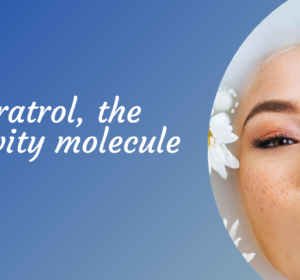In the modern digital age, our lives are intricately intertwined with screens emitting blue light. From smartphones and tablets to laptops and televisions, these devices are constant companions, enriching our lives with information and entertainment. However, an invisible threat looms beneath the surface – the effects of blue light on the skin. Beyond its captivating radiance, blue light has the potential to affect our skin in ways we didn’t expect. In this exploration, we delve into the intriguing realm of blue light’s interaction with our skin, uncovering both its promises and perils. Join me as we embark on a journey to unveil the intricacies of this relationship, shedding light on the hidden effects that lie beneath our digital screens.
What is the blue light?
Blue light is a type of visible light with a short wavelength and high energy. It’s part of the visible electromagnetic spectrum, which also includes other lights like red, green and yellow.
The Sun emitted blue light in a natural way, but electronic devices, such as smartphones, computers and LED screens, produce blue light artificially.

Exposure to natural blue light is beneficial for our bodies, as it helps to regulate sleep-wake cycles and mood. However, prolonged exposure to artificial blue light has negative consequences for our health.
Another name for blue light is HEVL (High Energy Visible Light). This HEVL is as harmful as UVA and UVB radiation and can cause premature skin ageing.
HEVL penetrates the skin reaching the deepest layers. This light causes damage to every skin layer. It also accelerates free radical production. As we already discussed in a previous post, free radicals affect collagen and elastin production.
Effects of blue light on the body
Blue light has effects on the overall body. Blue light can bring confusion to the brain. As I mentioned, natural blue light regulates sleep-wake cycles. An over-exposure to blue light can make the brain “think” it is daytime.
During day time, the brain inhibits melatonin production. Melatonin is the hormone responsible for sleeping (it is also a free radicals scavenger). This lack of melatonin produces insomnia.
But that is not the unique effect blue light has on the body. When the light reaches the eye, it needs to go through different parts like the cornea, sclera and lens before reaching the retina. The retina has sensitive cells which can result damaged by blue light. Therefore, we can suffer from sight problems as a consequence of blue light exposure.
Finally, blue light also affects the skin.

Effects of Blue Light on the Skin
Blue light affects the skin in different ways:
Blue light activates metalloproteinases.
These enzymes can destroy the extracellular matrix if they are in excess. Collagen and elastin are part of the extracellular matrix. Therefore, if the metalloproteinase enzymes destroy these molecules, the skin becomes dull and wrinkles may appear.
Oxidative Stress Effects of blue light
Blue light induces free radicals production, which, at the same time, induces oxidative stress. As we already discussed, oxidative stress can produce dry skin, wrinkles, dark spots, and other problems.
Hyperpigmentation
Blue light increases melanin production. As we know from a previous post, that can produce dark spots and hyperpigmentation.
Decreases aquaporins production
Aquaporins are proteins found in the membrane of biological cells. Another name for these proteins is “water channels” and they help to keep the skin hydrated.
Affects the skin renewal process Effects of blue light
As I mentioned, blue light produces insomnia. Skin renewal happens while we sleep. If the hours we sleep are reduced, it is also the time the skin is regenerating. The skin renewal gets affected.
Symptoms of Blue Light Overexposure
It’s not easy to know if you are overexposed to blue light. You may not suffer immediate effects, but HEVL is producing damage. However, some signs can help you to know if you are overexposed to blue light.
One long-term symptom is that the skin loses elasticity as a consequence of collagen and elastin loss. Also, you can observe dark spots appearing on your skin.
If you notice that it is because you’ve been already overexposed. The question is, how can I know if I am getting overexposed?
Well, there is a sign not related to the skin, which lets you know that you may want to stop the blue light exposure.
This sign is called Computer Vision Syndrome (CVS) and it is a condition consequence of an eye overexposure to blue light. The symptoms of the CVS include headache, blurred vision, eye strain, irritated eyes, and dry eyes among others.
If you feel any of those symptoms it is time to switch off your device to avoid more severe damage.
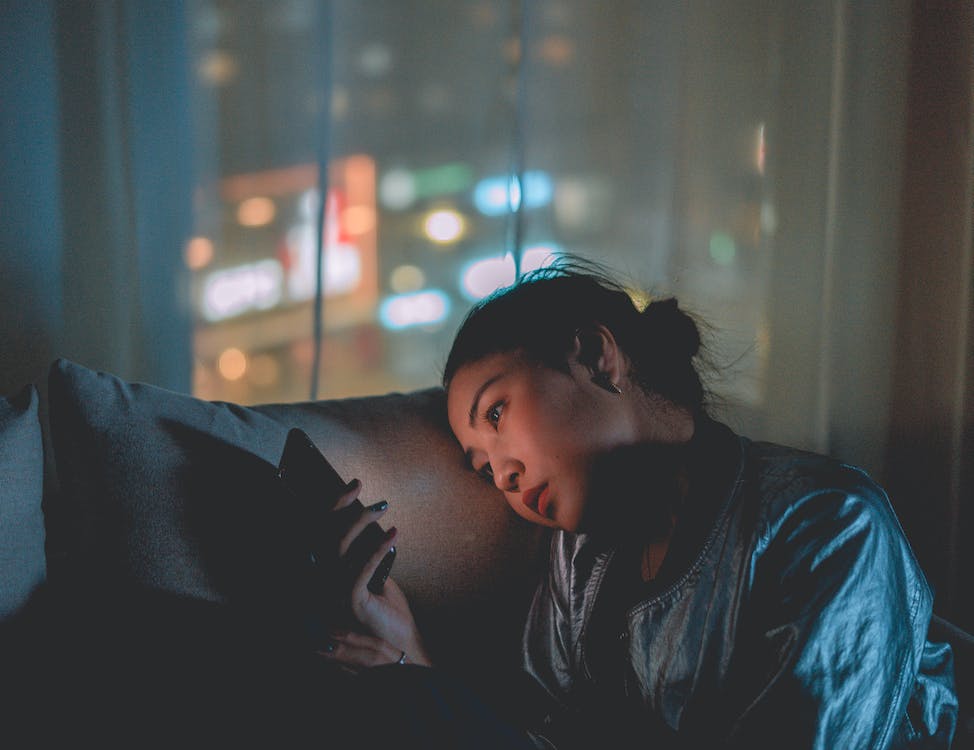
How can I protect my skin against the blue light effects?
First of all, try to use a screen filter to reduce the amount of HEVL emitted by your device. They are available at different stores, including Amazon, at an affordable price.
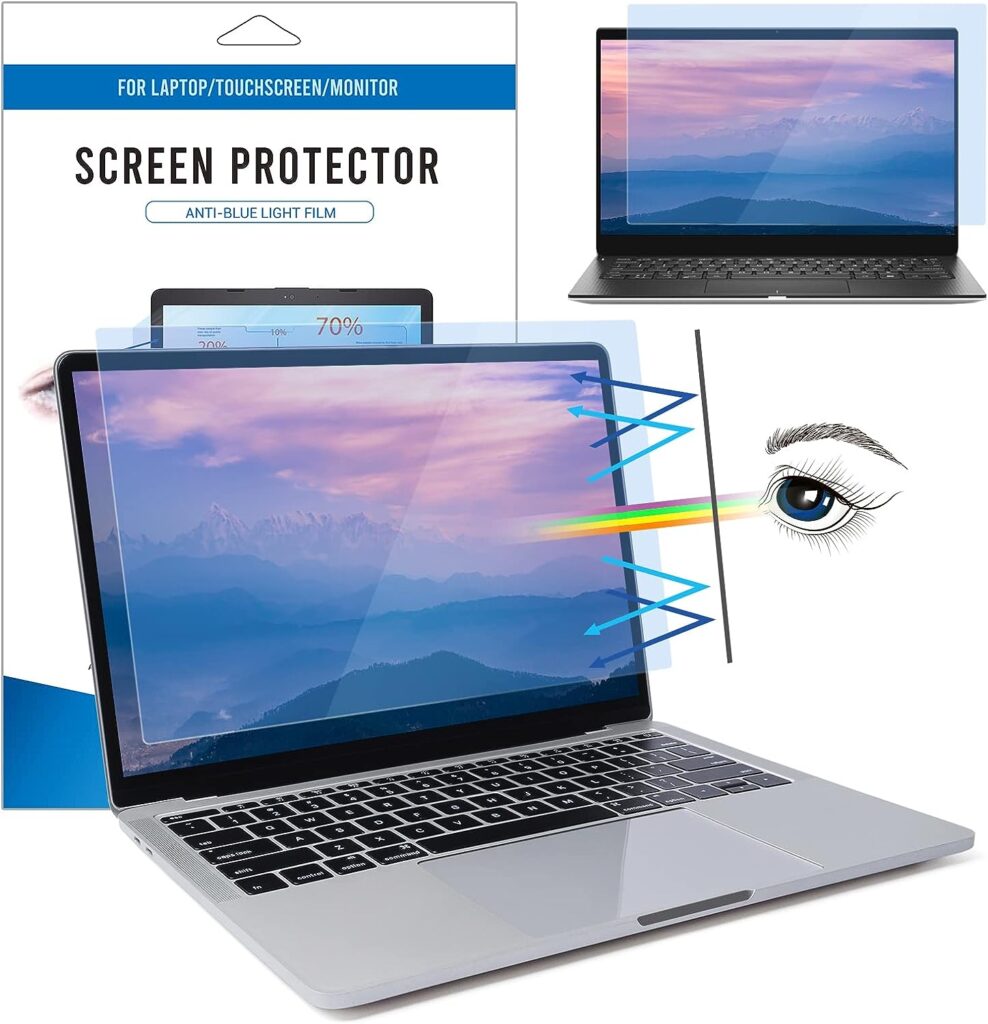
Ideally, you should apply a HEVL filter as part of your morning skincare routine. Unfortunately, there are not many products of this type available and the existing products are pretty expensive.
Some sunscreens claim to be broad spectrum. Check them out as some of them protect against UVA, UVB, IR and visible light. Another product which will protect you from blue light is the tinted sunscreens. The product I use and that I can recommend is the UltraSun Face Tinted SFP50+. You can use it as a CC cream or as a primer underneath any foundation.
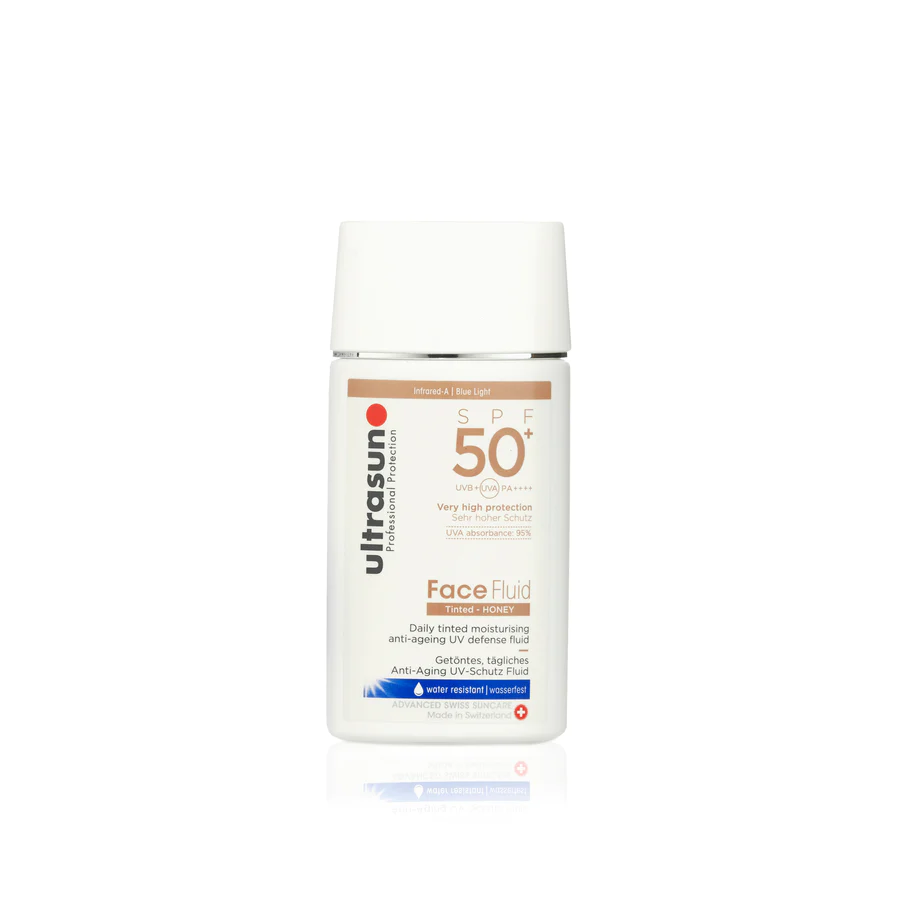
It is also important to use moisturising ingredients in your routine, like hyaluronic acid or ceramides. Equally important is the use of antioxidants to fight free radicals. The best antioxidants against free radicals are vitamin C, vitamin E and ferulic acid.
Finally, don’t forget the undereye area. This is a sensitive area which also suffers the blue light action. Always hydrate and protect it with products specially indicated for this sensitive area.
How to minimise blue light exposure
There are a few things you can do to minimise blue light exposure:
- Keep your devices far from your resting areas
- Disconnect them if they are not in use
- Keep your mobile phone far from your head and body
- If you are working with screens, look frequently out of it.
- Make outdoors activities
- Hydrate and nourish your skin at night

Understanding the effects of blue light on the skin reminds us of the importance of adapting to the digital age with informed choices. Whether it’s practising responsible screen time, employing protective measures, or adopting skincare routines that acknowledge these nuances, the quest for maintaining healthy skin in the face of modern technology is both a personal and collective endeavour.
Just as blue light’s effects on the skin were once unforeseen, so too may be the solutions and innovations that arise to mitigate any potential harm. Through continued research, mindful habits, and a commitment to holistic well-being, we can ensure that the digital radiance we embrace doesn’t cast shadows on the health and vitality of our skin.
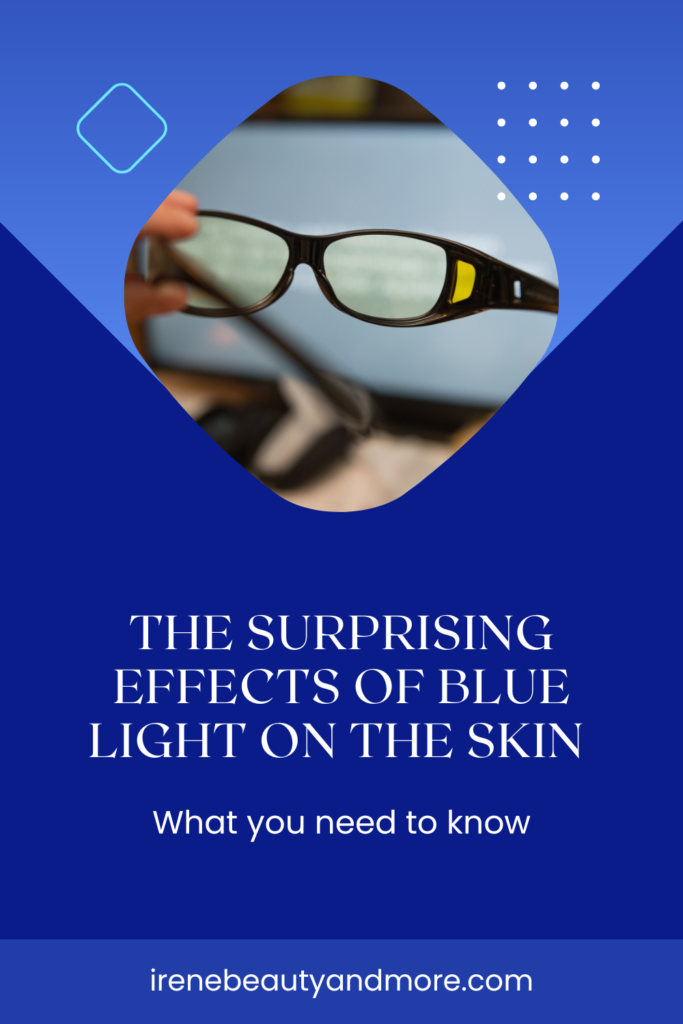

Bear in mind that some of the links in this post are affiliate links and if you go through them to make a purchase I will earn a commission. Keep in mind that I link these companies and their products because of their quality and not because of the commission I receive from your purchases. The decision is yours, and whether or not you decide to buy something is completely up to you.


